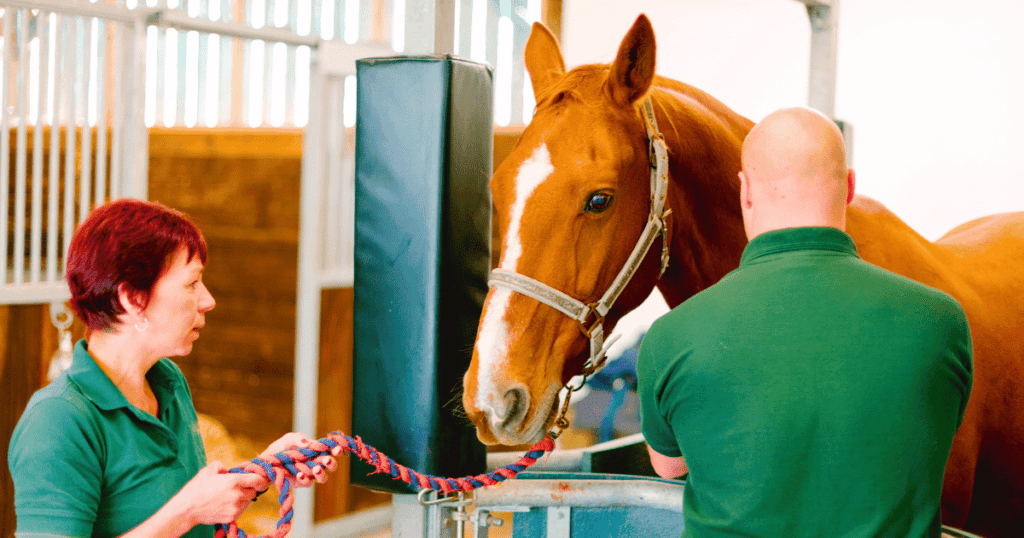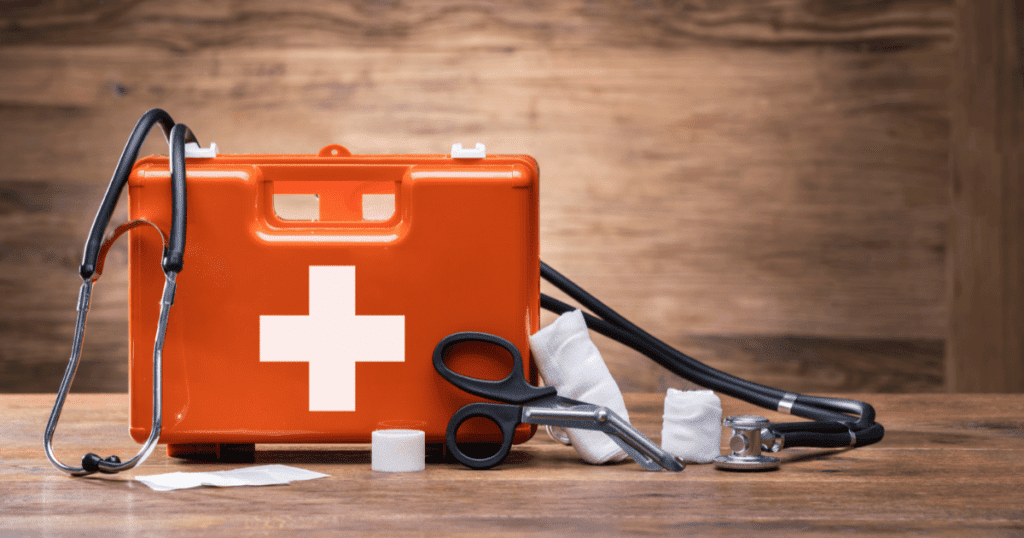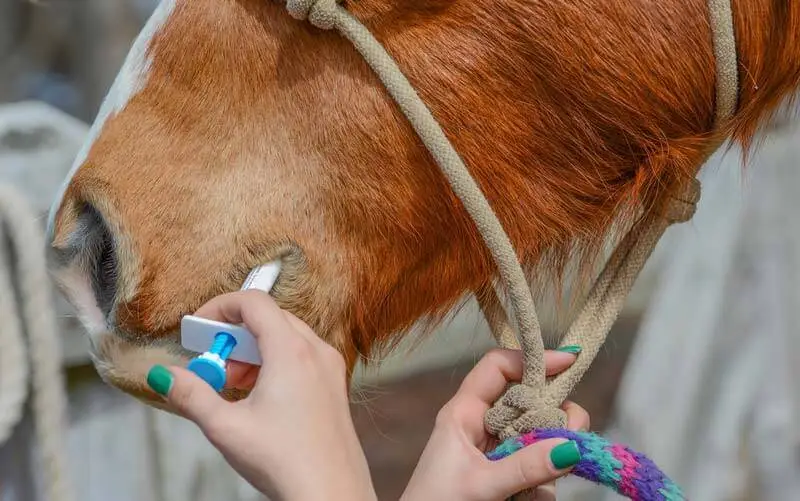How to Respond in an Equine Emergency
No matter how much we try to protect our horses, the chances are high that you’ll be confronted with a situation requiring immediate first aid care. In this article, we outline the first response steps you should take when you encounter an emergency.

How to Respond in an Equine Emergency
When bringing a new horse home, one of the most important considerations is safety. Every horse owner should have a well stocked first aid kit at their property and a plan in place for emergencies, including extreme weather events.
Before an Emergency
- Have a plan in place that you can follow during an emergency to prevent panic from setting in. This plan should include more than one evacuation route, in case you need to move your horse.
- Display emergency phone numbers prominently in several locations. These phone numbers should include your veterinarian, friends, and neighbors who can assist you.
- Regularly check your horse’s paddock and stall for potential hazards. You should also routinely check your horse’s vital signs, so you know when a change indicates a more sinister problem.
During an Emergency
- If your horse sustains an injury, try to keep them calm. If you are off-property or floating your horse, you should have a well-stocked and portable first aid kit handy.
- Call your veterinarian, so they can assess the severity of the situation with you. Your veterinarian will also be able to talk you through what to do while you await their arrival.
- When administering first aid, you must try to stop any bleeding, then cleanse and prevent infection. If blood loss can’t be controlled or the wound is serious, immediate veterinary intervention is critical.
First Aid Kit

Every horse owner should keep a well-stocked first aid kit containing:
- Digital thermometer
- Stethoscope
- Gauze pads
- Bandages (adhesive and non-adhesive)
- Sharp scissors
- Gloves
- Hand sanitizer
- Saline solution or flush
- Antiseptic solution
- Halter and lead rope
- Poultice bandage
If your horse is in the care of a friend or neighbor, ensure they know where to find the first aid kit and what to do in an emergency.



